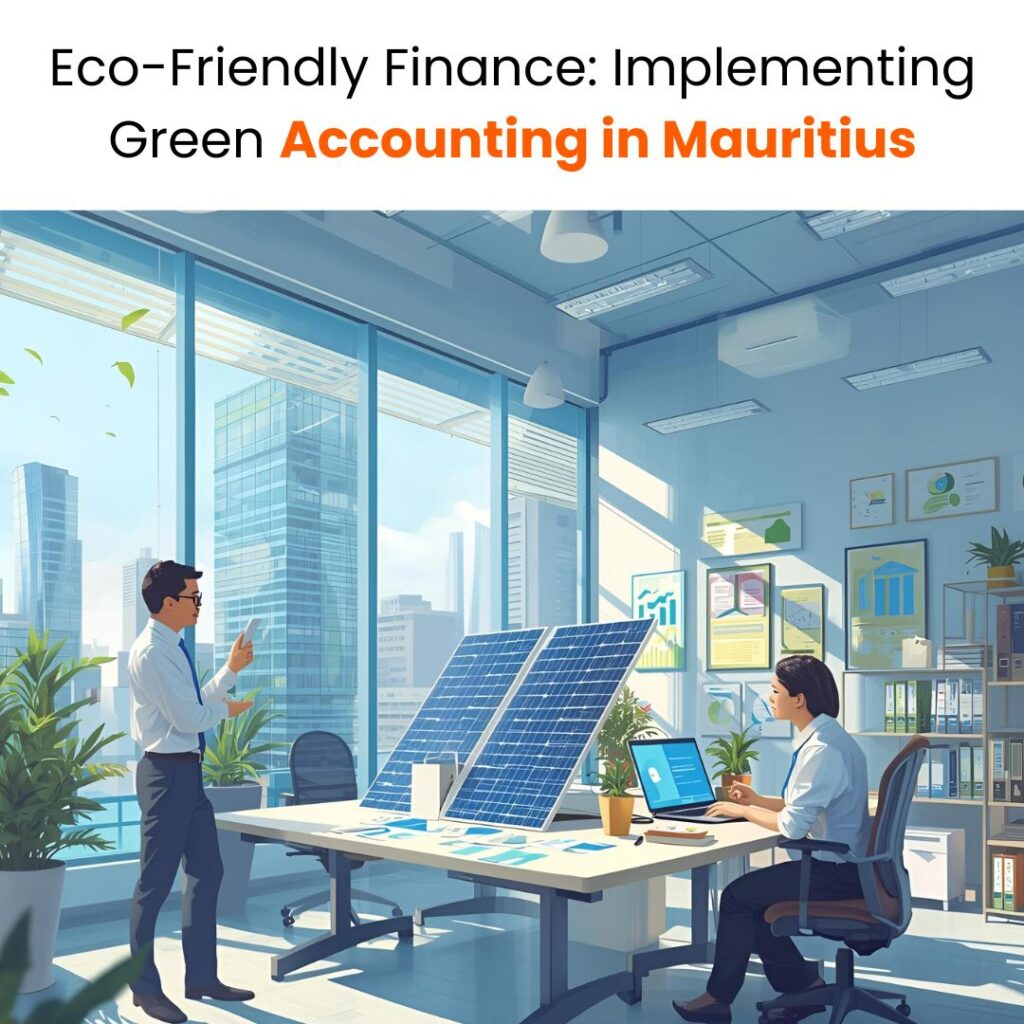INTRODUCTION:
Sustainability accounting or financing is becoming exceptionally popular worldwide as society is becoming more conscious about sustainable business practices, which leads to the need for sustainable business financing. The hype of skills of green accounting in Mauritius is no longer a trend; instead, it has become a requirement to enter the finance sector. Advanced financial and accounting qualifications like ACCA in Mauritius take these professional requirements of the finance industry quite seriously and add modules that concentrate on such areas in their academic curriculum.
Hence, if you are a finance aspirant who looks forward to building a success-driven career in this field, know that proficiency in Green financing skills is vital and can not be compromised on. It is better to take additional courses and certifications to equip yourself well with these skills and achieve all your career goals. The best practice to begin with is to research the green accounting practices, skills, and challenges so that you have all the insights and can structure a plan in accordance with that.
WHAT IS GREEN ACCOUNTING OR ECO-FRIENDLY FINANCING?
Green accounting is used to incorporate best financial practices for a business with the sustainable measures taken by the organization enabling effective decision-making, policy building, etc. Green accounting includes several practices, for which a professional needs to have a specific skill set so that he can efficiently measure & report finances included in environmental externalities, distribute environmental costs (in business operations, investments, etc), and effectively use ESG factors in financial reporting.
CURRENT LANDSCAPE OF GREEN FINANCING IN MAURITIUS:
Let’s see what measures Mauritius has taken to implement green accounting/financing practices in the region.
- To create awareness about green financing in Mauritius, concerned institutes such as the Bank of Mauritius and the Financial Services Commission had published regulatory guidelines and foundations about green accounting in 2021.
- According to the norms of Corporate governance in Mauritius, businesses are required to provide ESG and performance outlook in their annual reports, making it mandatory for every business to follow the rule.
- Mauritian government bodies have set a national target to reduce greenhouse gas emissions by 40% by 2030, and they are quite committed to achieving it. Their efforts are evident by the fact that the Government is well-focused on arranging investments for energy transitions, blue economy, etc, in their recent budgets.
- Encouraging green financing activities, such as the issuance of sustainable bonds and loans in Mauritius.
MAIN CHALLENGES FACED IN THE IMPLEMENTATION OF GREEN ACCOUNTING:
There are various challenges faced in incorporating green or sustainable accounting practices, but over time, all challenges are being addressed as professionals are getting more skilled and knowledgeable about these practices. Some of the key challenges faced in Mauritius are as follows:
- Mauritius, however, has regulatory frameworks for sustainable finance practices, but those are not well-understood. Professionals are usually unaware of which practice is exactly counted as ‘Green’.
- There is no green taxonomy; this might lead to risk of inconsistency in reporting practices, investor uncertainty, and greenwashing etc.
- Lack of standard tools for measurement and data collection is a challenge, especially when it comes to environmental data collection.
- Implementing sustainable practices can be challenging, especially for SMEs that have cost constraints.
- Tax and financial incentives in Mauritius are still very narrow or limited.
- Lack of awareness regarding sustainability metrics amongst stakeholders and investors is a huge challenge.
ELEMENTS OF A GREEN ACCOUNTING IMPLEMENTATION STRATEGY:
Here is a roadmap of how to efficiently implement green accounting and sustainable financing; the key components of this roadmap are:
- Establish a well-structured and strictly followed legal regulatory framework; this will strengthen sustainability practices across sectors and industries.
- Focus on standardizing Metrics, Reporting, and Assurance so that the same structure is followed across all industries in Mauritius.
- Support in capacity building and technical tools, as many firms lack in these; building institutions to train professionals, training sessions, and seminars can be of great help.
- Transparency, disclosure, and market instruments are the key elements that need to be focused on while creating a sustainable financial report.
- Measures to avoid greenwashing, inaccuracy, and focus on monitoring as well as enforcement are essential and can not be overlooked.
- If you are willing to implement green financing in Mauritius, raising awareness through campaigns amongst stakeholders and investors as well.

today!
BENEFITS OF IMPLEMENTING GREEN ACCOUNTING PRACTICES:
Here is a list of benefits an organization, stakeholders, or society gets from implementing green financing practices:
- Brings more national and international investments by attracting stakeholders or investors focused on ESG factors.
- Green accounting helps Mauritius in meeting its climate goal of GHG reduction by 2030.
- Helps in improving the risk management for businesses by keeping finances transparent and accurate.
- The transparency in reporting that sustainable accounting brings is good for improving public trust and corporate governance.
- It helps in maintaining ethical practices in accounting field which is quiet difficult globally.
CONCLUSION:
As the global dynamics of financial sectors are changing and the need for modern accounting practices is observed as businesses are now focused on sustainability factors, professionals are becoming more curious and skillful by choosing advanced accounting qualifications like ACCA in Mauritius that will prepare them for this ever-evolving sector. Professionals should take it as their responsibility to learn green financing skills, as it is no longer an option but a requirement of the global finance sector. Green financing practices are, however, beneficial for the financial sectors as they improve reporting through transparency and accuracy, much-needed elements in this sector.
FREQUENTLY ASKED QUESTIONS:
Q1: Why are the green financial practices so essential for Mauritius?
Answer: Green financial practices have been taken way too seriously in Mauritius for a couple of years, the reasons behind which are that they help in environmental preservation, economic resilience, attracting investors, and global credibility.
Q2: Which sectors are more affected by the implementation of green financing practices?
Answer: Some of the industries that benefit more from green financing include tourism, energy, financial services, and agriculture.





